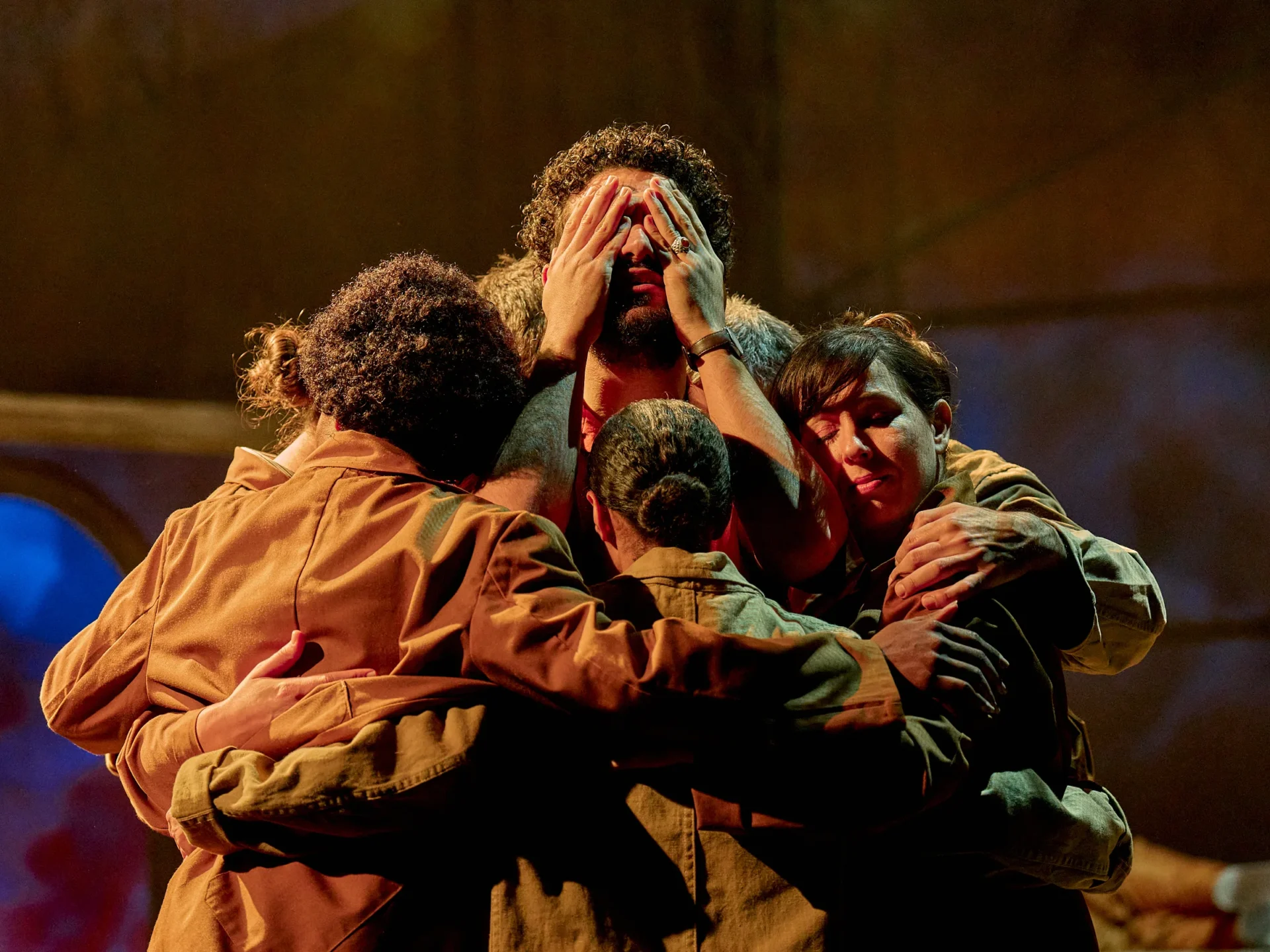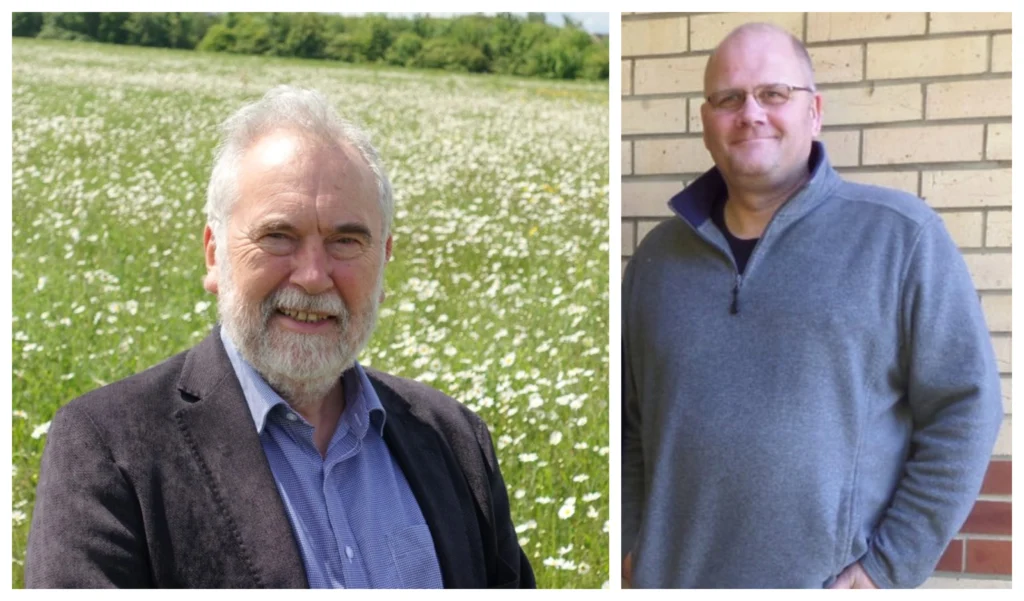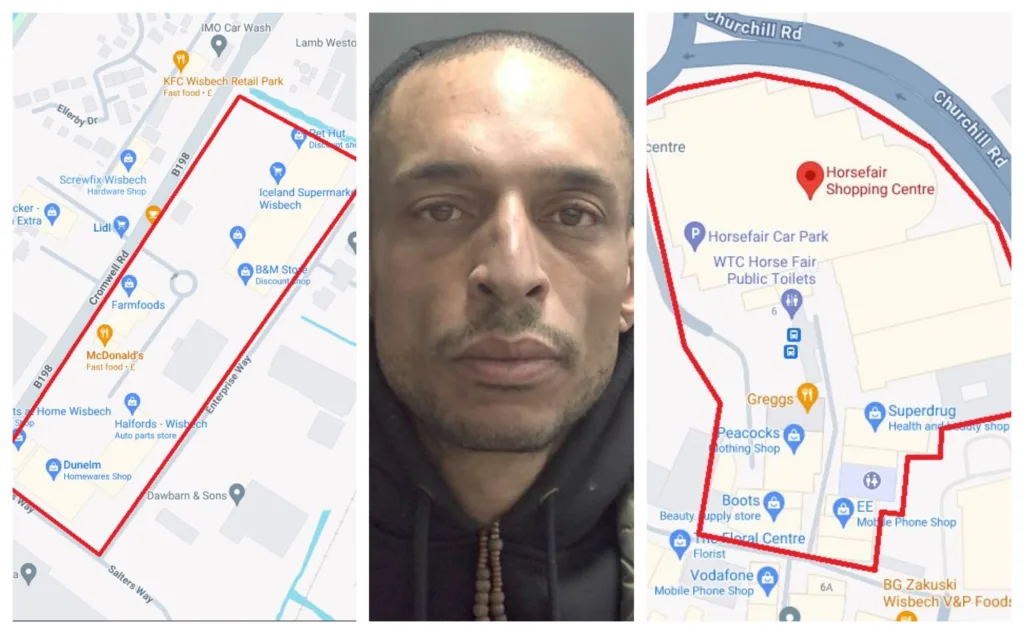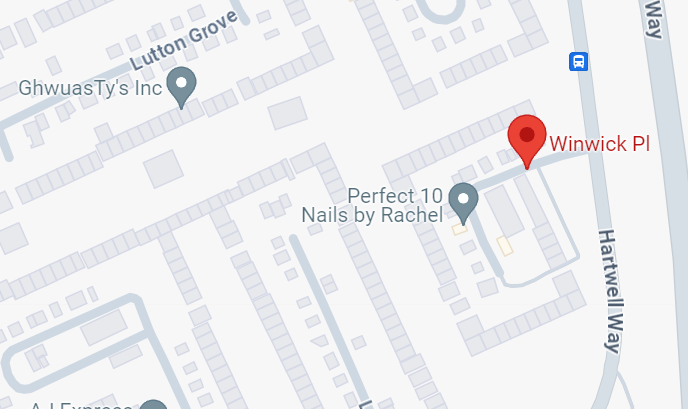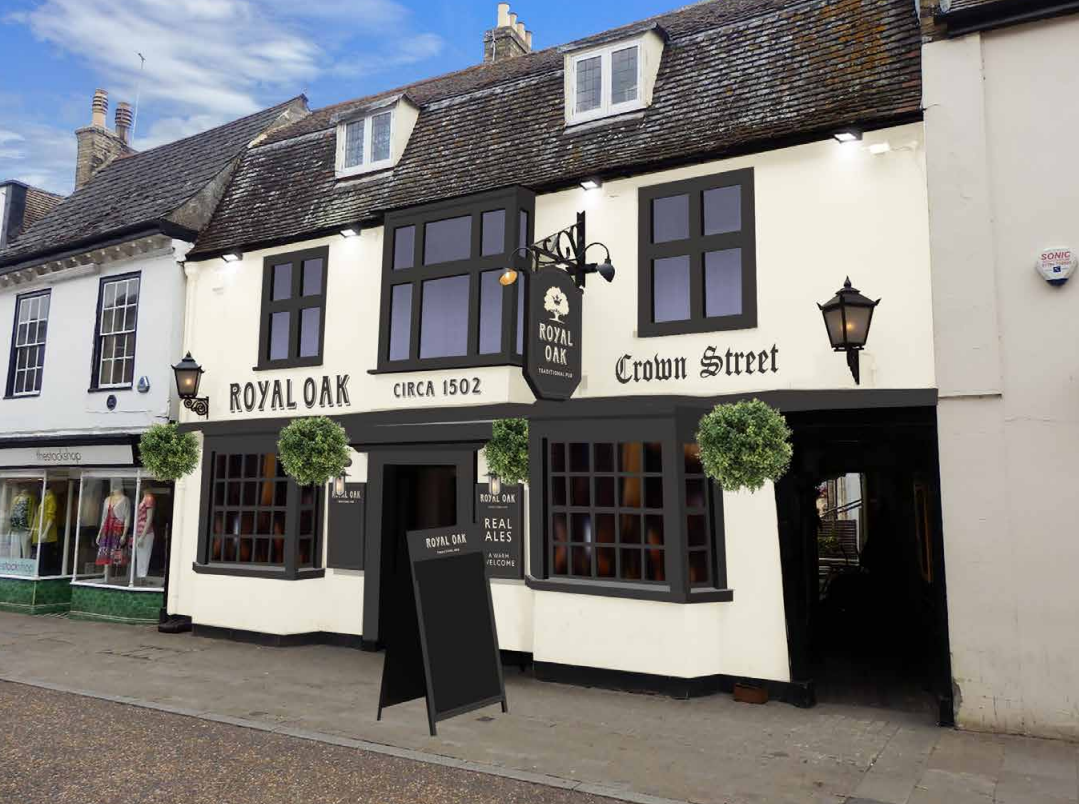There is humanity and humour, and some great characterisation in this story of a couple fleeing war-blasted Syria.
The play opens with The beekeeper, Nuri and his blind wife Afra in a grim bed and breakfast in an English seaside town.
One of their fellow residents is an unnamed Moroccan fellow who calls Nuri “geezer”. (Played gorgeously by Joseph Long)
He is reading a book on how to be British. You have to fit in he says, opening his shirt to reveal a Union Jack t-shirt.
The stage version, like the best-selling book by Christy Lefteri, weaves the story of Nuri and Afra (moving performances on the second night at Cambridge Arts Theatre by Aram Mardourian and Roxy Faridany) as they negotiate the absurdities of UK bureaucracy.
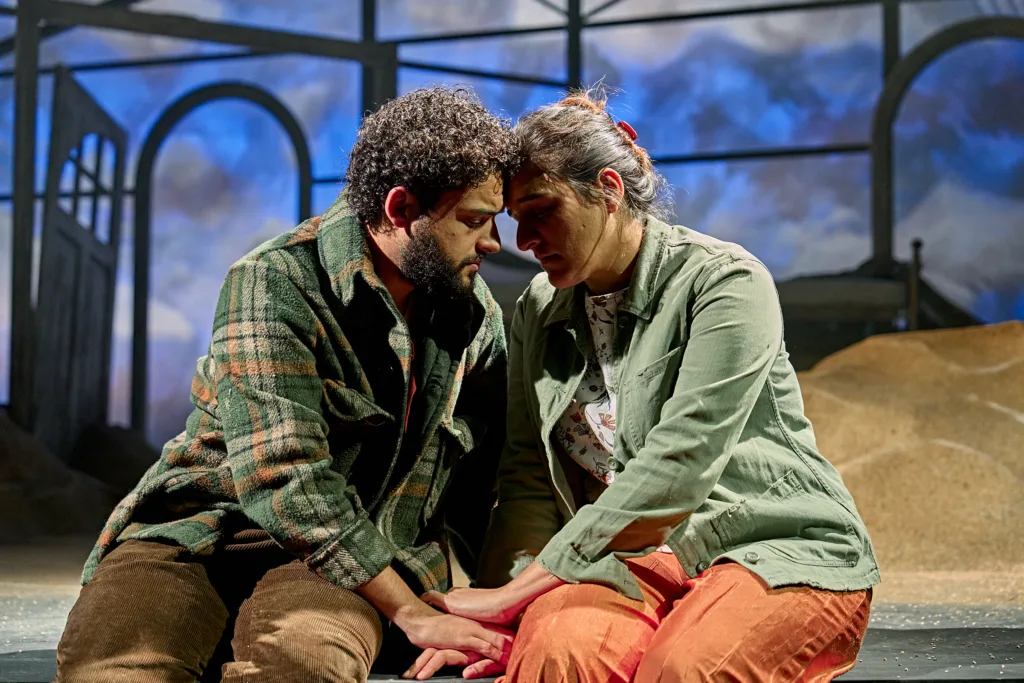
Meanwhile the memories of their once comfortable and happy life in Syria compete with terror flashbacks of the horrific stages of their journey through Turkey and Athens to Britain. Mardourian dedicated his performance to his uncles Zareh and Harout who fled the war in Aleppo.
But even in Athens, where they are at the mercy of the elements and the deranged, there is a well-observed vignette of the desperate to be helpful, English volunteer Neil.
Played exquisitely by Fanos Xenofos, he is helplessly apologetic that he and his clipboard cannot be of more service.
He shows them at first to comfortable accommodation but when he realises, they are just a couple and not a family with a child – all he can offer is a blanket in a park. “Better than the street,” he says limply.
Adapted for the stage by Nesrin Alrefaal and Matthew Spangler, this is the story of two, once happy Syrian families.
The men, two cousins, kept bees and sold their honey and other bee products in a thriving shop in Aleppo. It’s a good life.
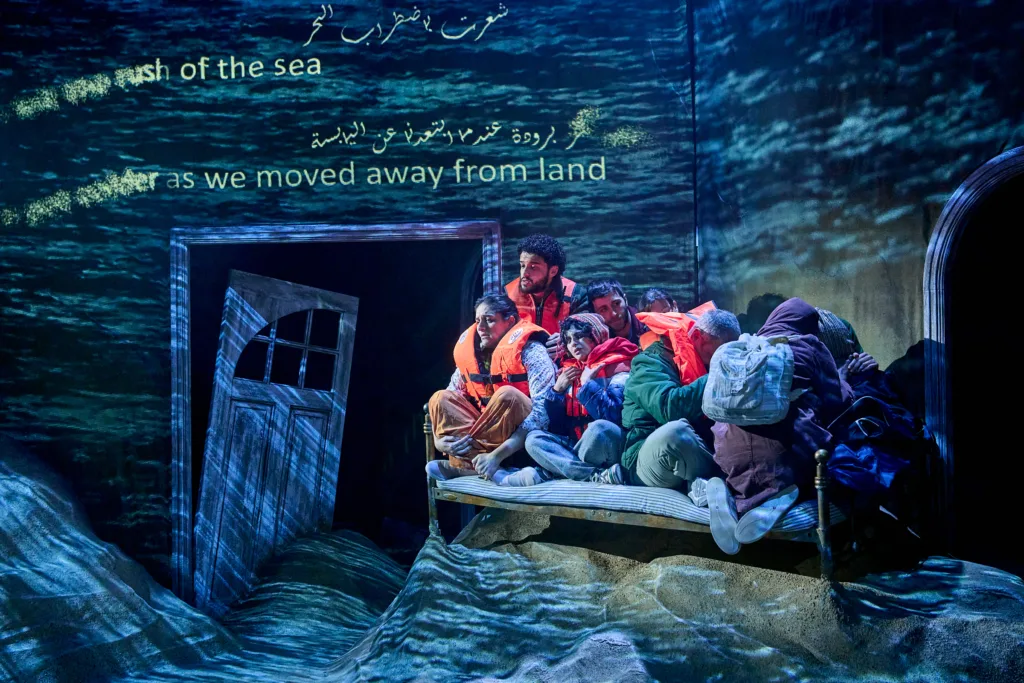
The older cousin, Mustafa, (a brilliant Joseph Long who also plays the unnamed Moroccan man) sees the danger early. It began in March 2011 with schoolchildren arrested after a peaceful protest.
Then things got bloody – then it became all-out war. After the beehives are burned to the ground, Mustafa decides to send his wife and daughter to England to live with family there.
A harrowing moment in the play is when real footage of a bombed out Syrian city is projected right across the stage.
Nuri is reluctant to leave, even when their city has become rubble and most people have gone.
But one day he is stopped by armed men and told he will join them or be executed. He and Afra allow their eight-year-old son Sami to play in the garden one last time.
A bomb hits the garden and Sami dies in his mother’s arms.
Afra, an artist, loses her sight.
Meanwhile Mustafa’s teenage son Firas is found dead in the river. His father, who is helping out at the mortuary, lists the death as caused by “this broken country.”
This is the story of how they resurrect their lives after these unbearable losses.
Mustafa reaches England first and (though refugees are not allowed to work) he is able to volunteer with a beekeeping project in Yorkshire. “The home of the tea”. English bees can work in cold climates and even the rain, he tells Nuri in a cheerful email, encouraging his cousin to join him as Nuri and Afra are travelling month after month by sea and land.
This is a powerful production of a heart-wrenching book. Lefteri from a Cypriot refugee family based her book on stories told to her when she volunteered to work with refugees in Greece.
All the performances are strong with the cast playing multiple roles. Nadia Williams is superb as Angeliki, the African woman who will not leave the park in Athens after her baby daughter was stolen because she thinks one day she will return.
Williams absolutely captures the character’s vulnerability yet indomitable spirit. Sometimes people with the deepest losses refuse to be crushed.
Elham Mahyoub brings light relief as the child Mohammed who for a while joins Nuri and Afra on their journey.
Directed by Miranda Cromwell, this is a fast-paced show with enough wit and wisdom to be, despite its heart-breaking truth, an uplifting night at the theatre because it is done so well.
The production’s designer Ruby Pugh volunteered at refugee camps in Calais, Dunkirk, and Athens. When she left to return to Britain, the people she helped wrote her a note saying she had made them happier. “When you go to England, explain our story.”
The Beekeeper of Aleppo is at Cambridge Arts Theatre until Saturday, May 20 then touring.


